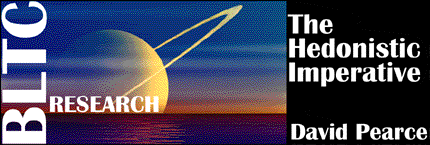CRACK COCAINE
A once-in-a-lifetime experience?

The high from crack cocaine is intensely rewarding. So it's reckless to try the drug at all - at least until one's death-bed - because it's extraordinarily hard to forget. If one succumbs to curiosity, then other things in life can easily pall in comparison. Tragically, family and loved ones may suffer almost as much as the addict.RefsSo is a fallen crackhead inescapably doomed? Or are there ways (s)he can escape from the abyss?
Perhaps. Most of the GIs who got hooked on unmistakably physically addictive heroin in Vietnam kicked the habit when they returned to the USA. They quit, often without undue difficulty, because most of the "conditioned cues and reinforcers" associated with drug-use in South-East Asia were missing back home.
Thus a complete change of environment, especially in the company of supportive family and (drug-free) friends, can help break a user's self-destructive cycle of coke-binges. Cue-elicited craving is a major cause of relapse in recovering coke-users. Good food, particularly an idealised stone-age diet [fruit, vegetables, nuts, seeds, wholemeal bread, pasta, rice etc] should help too. Regular vigorous exercise is useful as well [and probably Faith In Jesus, though this isn't always a realistic option]
Some drug-pundits recommend Total Abstinence: "Just Say No." The ex-addict is encouraged to renounce "unnatural" chemical highs altogether. This course of action may indeed be prudent. Unfortunately, godliness, virtue and clean living aren't always the recipe for a happy life either.
For many cocaine-users have a pre-existing psychiatric disorder - even by today's dismally impoverished conception of mental health. In effect, such users are self-medicating, even if they ostensibly take coke "for kicks". So in place of cocaine, clinically useful mood-brighteners (e.g. desipramine, a noradrenaline reuptake blocker; or more daringly, amineptine, a dopamine reuptake blocker) and/or anti-anxiety agents may be considered instead.
Alternatively, if the user wishes to Say No To Drugs completely, then a "natural", gentle mood-brightener and anti-anxiety agent, hypericum (St John's wort), may be taken indefinitely. Unfortunately, this traditional herbal remedy is not a dependable cure for deep melancholic depression - coke-induced or otherwise.
Inevitably, today's ordinary mood-brighteners, whether herbal or clinical, won't stand comparison with tomorrow's designer-drugs. Nor will they deliver the rapturous but addictive rush of a fast-acting euphoriant. Contemporary therapeutic mood-boosters yield desperately little joy compared to the lifetime of genetically pre-programmed superhealth on offer to our descendants. But our existing DNA didn't design us to be happy. So for now dirty chemical stopgaps are often better than nothing at all.
TCAs
SAMe
Cocaine
Oxytocin
Selegiline
Bupropion
GBR12909
Amineptine
Venlafaxine
Buprenorphine
St John's wort
Future stimulants
The drug test FAQ
A vaccine against pleasure?
The neural basis of addiction
dave@bltc.com01 02 03 04 05 06 07 08 09 10 11 12
13 14 15 16 17 18 19 20 21 22 23 24Refs
HedWeb
Mood-Foods
Amphetamines
Future Opioids
BLTC Research
Wirehead Hedonism
Cocaine Anonymous
Drugs and the Christian
The Hedonistic Imperative
World Transhumanist Association
Critique Of Huxley's Brave New World
When Is It Best To Take Crack Cocaine?
The Good Drug Guide
The Responsible Parent's Guide
To Healthy Mood Boosters For All The Family

